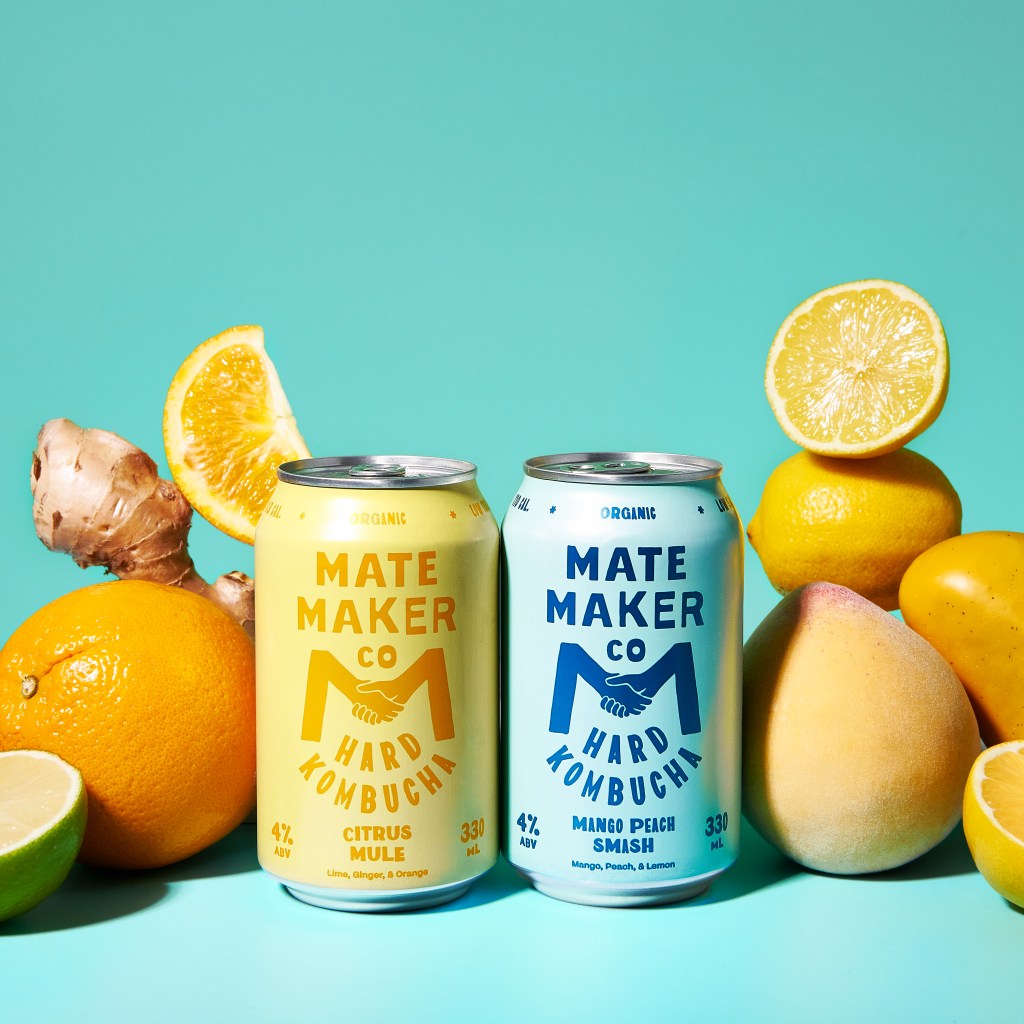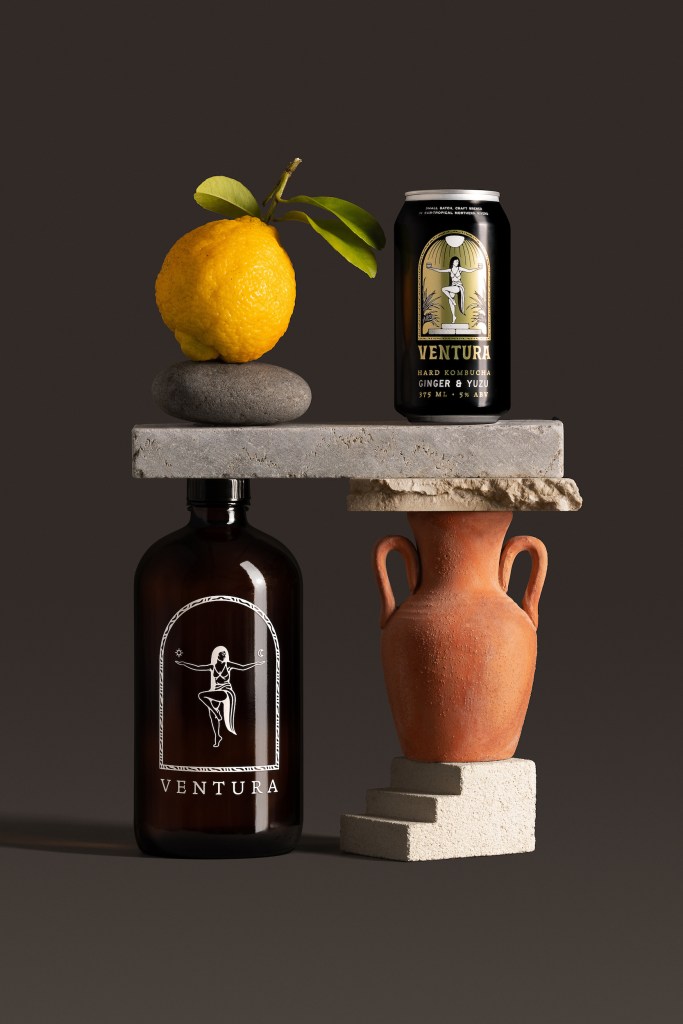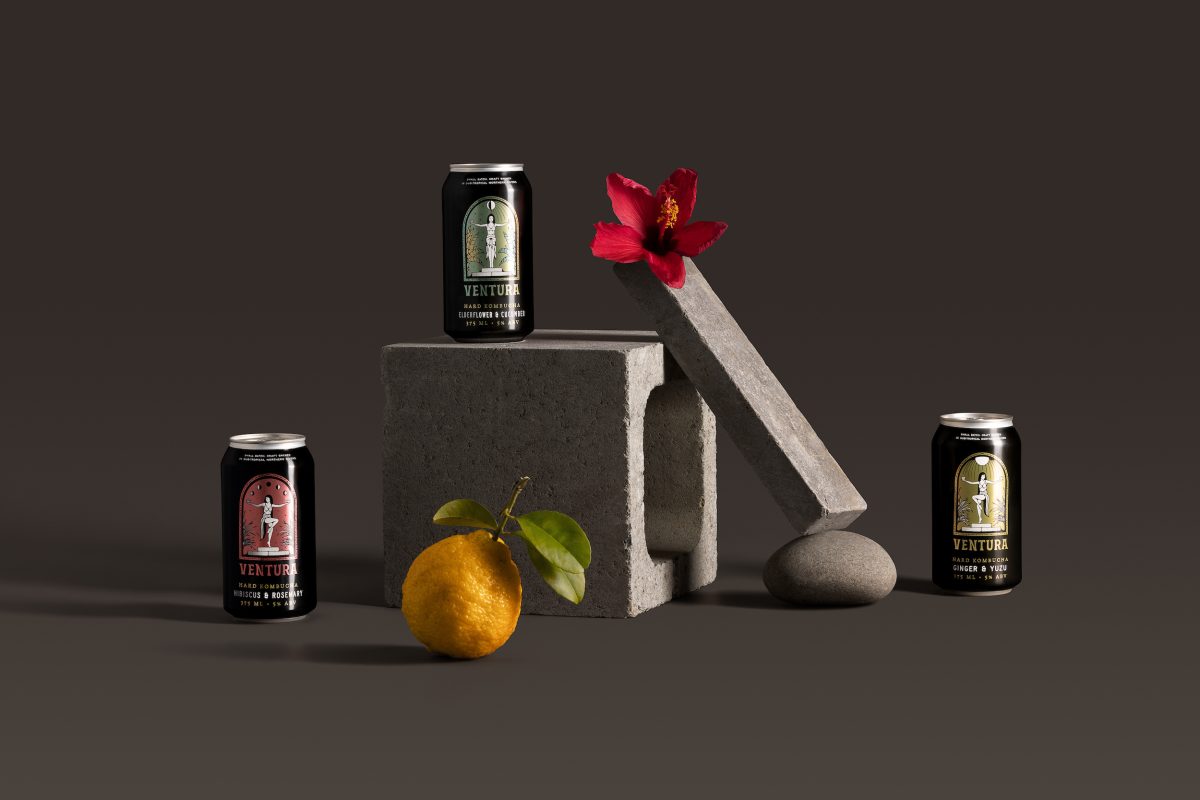Kombucha, in its non-alcoholic form, exploded into the Australian beverage market in the 2010s, with global market reports organisation, the Brainy Insights, predicting a compound annual growth rate of 15.1 per cent to 2030.
The drink itself (a kind of fermented tea) is considerably older, thought to have emerged in north-eastern China around 200BC. Kombucha then spread along ancient trading routes, just as tea itself did.
In recent years, alcoholic versions of kombucha have also made it to the market. National Liquor News spoke to two producers in this space, to hear what this tangy RTD subcategory can offer retailers.
How is it made?
So what exactly is hard kombucha? Tom Appleton, Co-founder of Mate Maker Co, sheds some light on the category.
“Hard kombucha is like regular kombucha in many ways; it’s a low sugar fermented beverage made using tea, sugar, a probiotic bacteria and yeast, except we take the fermentation process a step further to make it alcoholic,” he said.
Production of kombucha, particularly in its alcoholic iteration, is a delicate art, as Dom Hurley, the Co-founder of hard kombucha brand,Ventura Brewing, explains.
“When we first started on the path, there was very little information available on brewing an alcoholic kombucha, so essentially we had to start from scratch, adapting techniques, methods, and equipment from beer, cider, wine, and regular kombucha brewing to see what worked,” Hurley said.
“We decided early on we didn’t want to just premix it with spirits, so instead the alcohol is produced by our unique double fermentation, developed and refined over three years of rigorous R&D in our purpose-built facility.
“Unlike fermenting a beer or seltzer, there’s a lot of competing yeast and bacteria, which has made it extra tricky and our path the slow, hard, expensive way, but overall it gives a much more complex and integrated flavour profile than other methods.”
Flavour, in the form of fruits, spices and herbs, is usually infused after a secondary fermentation of the kombucha base, which brings the product up to the desired alcoholic proof – and separates its from its non-alcoholic counterpart.

Better for you?
As Hurley highlights, the ‘good bacteria’ contained by the drink means kombucha is also associated with an array of health benefits, particularly in digestion, with the natural probiotics thought to promote a healthy gut. This offers the potential for retailers to tap into the ‘better for you’ trend, and Appleton says this was a key motivation for Mate Maker when entering the market.
“We first looked at the grocery market in Australia and overseas and it was really clear that ‘better for you’ is a huge macro consumer trend, we saw consumers choosing better ingredients and being far more informed when it came to their food choices,” Appleton explains.
Appleton also believes that hard kombucha can also play upon the success of the wider seltzer and RTD category.
“We know consumers are looking for healthier options in booze, and seltzer has been a great introduction to this movement. Innovation is also super important to category growth, so we feel hard kombucha delivers on all the category trends and is backed up by the mainstream awareness of the kombucha category,” he said.
Hurley does sound one important note of caution for retailers looking to lean on this narrative.
“It’s important to recognise that the trend is ‘better for you’ not ‘good for you’. Alcohol is inherently a toxin, which has some serious effects on the body, so we are really careful not to promote it as something healthy,” Hurley says.
“In saying that, it’s not just the alcohol that’s bad for you; it’s also all the sugar, carbs, preservatives, artificial ingredients, gluten, and so on.”
Moreover, Hurley also believes that hard kombucha channels more than one trend in the drinks industry, saying: “Today’s health conscious consumers care about what goes in their bodies, so cutting all this out and keeping it as light, clean, and natural as possible is important.
“Ventura Hard Kombucha ticks all these health-conscious boxes without compromising on the best part about a good craft beverage – the taste and flavour experience – the whole reason craft beer was so successful.”

Where can hard kombucha sit for retailers?
Of course, with the RTD category already so competitive and crowded, Australian retailers might be wondering how hard kombucha can fit into their portfolio. The producers are conscious of this challenge, but equally believe that their products have a unique offering for many, drinkers and industry alike.
“For retailers, you’re probably thinking, ‘I need another craft beverage about as much as a fish needs a bicycle’, but if you have tried all the craft beers and are looking for something new to excite customers who have pale ale and seltzer fatigue, hard kombucha could just be it,” Hurley says.
“The reality is that the future is here. It’s obviously still early days, but as the saying goes, ‘the early adopters reap the rewards’.”
There’s also the simple proposition of diverse and engaging flavours contained by the subcategory.
As Appleton outlines: “We have two flavours on the market at the moment – Mango Peach Smash and a Citrus Ginger Mule which are both at the opposite ends of the flavour spectrum. Both are performing well across a really wide consumer base.”
The tried and tested method of liquid on lips is noted by producers as the best way for retailers to introduce hard kombucha to potential new audiences.
“Our playbook when it comes to in venue execution is primarily around liquid sampling, we know the liquid is incredible so it’s key for us that all staff have tried the product,” Appleton said.
“We’re having a lot of success in consumer tasting sessions, education is key.”

